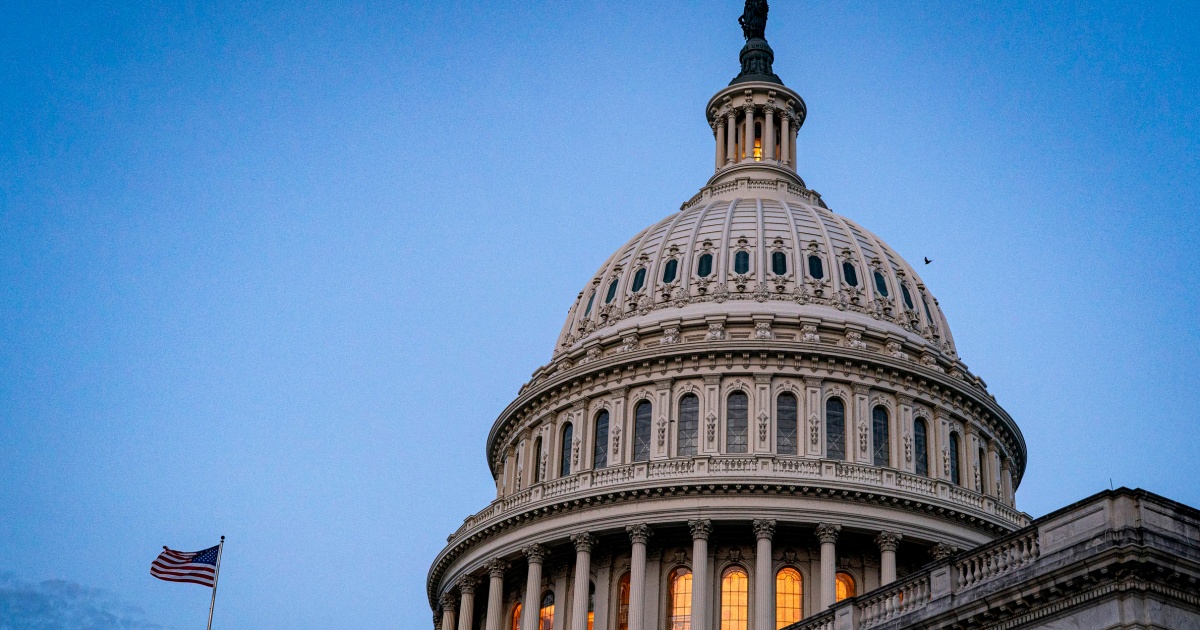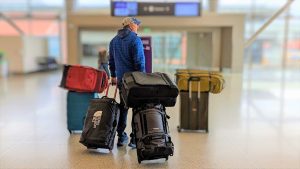Profile
news Alerts
There are no new alerts at this time
The federal government shut down Wednesday after lawmakers left the Capitol without passing a funding bill.
Agencies and departments have issued guidance in recent days on what to expect when the money runs out.
Here’s what will happen during the shutdown.
The majority of veteran benefits and military operations will continue to be funded regardless of a shutdown. However, pay for military and civilian workers will be delayed until a funding deal is reached, forcing them to continue their duties without pay.
Military personnel on active duty, including active guard reserves, will continue their duty. However, no new orders may be issued except for extenuating circumstances — such as disaster response or national security. Some National Guard members serving through federal funding could have their orders terminated unless performing an essential duty.
The Department of Veterans Affairs said it expects 97% of its employees to work, though regional offices will be closed. Some death benefits, such as the placement of permanent headstones at VA cemeteries, and ground maintenance, will cease. Also affected will be communication lines, including hotlines, emails, social media and responses to press inquiries.
Air traffic control services will continue, allowing for 13,227 air traffic controllers to work through a shutdown — but without pay until the government is funded again. Other essential activities, such as the certification and oversight of commercial airplanes and engines will continue, as will limited air traffic safety oversight.
However, the Department of Transportation will stop air traffic controller hiring, field training of air traffic controllers, facility security inspections and law enforcement assistance support.
In a letter Monday, a coalition of aviation groups urged Congress to avoid a shutdown, saying funding lapses will hurt the Federal Aviation Administration. The letter cited the furloughing of many FAA employees, and said the ceasing of funding could create backlogs that will create delays in critical FAA services “long after funding resumes.”
“While air traffic controllers, technicians and other excepted aviation safety professionals will continue to work without pay, many of the employees who support them are furloughed, and the programs that the FAA uses to review and address safety events are suspended. To remain the world leader in aviation, we must continue to strive to improve efficiency and further mitigate risk,” the aviation groups wrote.
Social Security benefits, considered mandatory under law, will continue regardless of a shutdown, so recipients can expect to continue receiving their payments. However, the Social Security Administration could face a furloughed workforce. Fewer workers could mean that processing new Social Security applications could be delayed.
The Department of Health and Human Services — home to agencies such as the Centers for Medicare and Medicaid Services, the Centers for Disease Control and Prevention, and the Food and Drug Administration — said in its contingency plan that it expects more than 32,000 of its nearly 80,000 workers to be furloughed during the shutdown.
HHS said “excepted activities” will continue, offering as an example responses to pandemic, flu and hurricanes. Additionally, the National Institutes of Health will continue research and clinical services necessary to protect human life and government property.
Still, research contracts and grants to external organizations, such as universities, will freeze, and NIH will not admit new patients to its research hospital unless medically necessary. HHS also said it will not process Freedom of Information Act requests during a shutdown.
The FDA will continue exempt activities, which include drug and medical device reviews and recalls, monitoring and response of foodborne illnesses and the flu, pursuing some investigations when the agency believes the public is at risk, and screening food and medical products imported to the U.S.
The agency warned it would end its ability to monitor the use of new ingredients in animal food, and thus would not be able to ensure that meat, milk and eggs of livestock are safe for the public to eat. Long-term food safety initiatives would also be stopped during a shutdown.
The FDA will not process new drug applications and medical device submissions. The agency warned it will not support staff that oversee protection of unsafe or ineffective drugs unless it is an imminent threat.
The Department of Education will continue to disburse student aid through Pell Grants and Federal Direct Student Loans — assistance that goes to nearly 10 million students at 5,400 schools, the department said.
But borrowers still need to make their loan payments during a shutdown, the memo added.
In the first week of a government shutdown, the department will furlough about 95% of staff who don’t work on federal student aid, the memo said. The department will also halt new grant-making activities during a lapse in funding.
The CDC will continue to monitor and respond to disease outbreaks, but it will be hampered in providing the public with health-related information, its contingency plan said.
The agency also won’t be able to provide state and local health departments with guidance on things like preventing opioid overdoses, HIV and diabetes.
Some other operations will similarly grind to a halt, including responses to inquiries about public health issues and the analysis of surveillance data for certain diseases, the Department of Health and Human Services said.
The department also said slightly more than a third of the staff at the CDC and the Agency for Toxic Substances and Disease Registry will continue working during a shutdown.
The Supplemental Nutrition Assistance Program, also known as food stamps, and the Special Supplemental Nutrition Program for Women, Infants and Children (WIC) will continue during a shutdown, according to the Department of Agriculture’s contingency plans posted Tuesday afternoon.
The agency said SNAP and WIC will continue “subject to the availability of funding.”
The document added that a May letter from the Office of Management and Budget previously committed funds for SNAP for October, ensuring the programs will continue to run through that month. It added that SNAP has multiyear contingency funds available to it but did not specify how long those funds would last.
A National Park Service contingency plan released Tuesday night said parks will remain partially open during the shutdown.
Open-air sites — such as park roads, outlooks, trails and some memorials — will remain open to the public. Restrooms will remain open, and trash will be collected.
NPS advised, however, that emergency services will be limited.
Buildings that require staffing, such as visitor centers or sites like the Washington Monument, will be closed.
The Smithsonian Institution’s museums and National Zoo — major draws for visitors to the nation’s capital — said Tuesday afternoon that they will use funds from the previous year to remain open to the public at least through Oct. 6.
An FAQ page on the zoo’s website said animals at the zoo and the Smithsonian’s Conservation Biology Institute will continue to be fed and cared for, but animal cams will no longer broadcast.
No, federal workers will largely not be paid during a shutdown. Employees who are considered essential must still report to work, although they will not be paid until the government reopens.
Furloughed and essential employees will receive back pay after a shutdown ends.
President Donald Trump and members of Congress, however, will continue to receive paychecks during a shutdown. Their pay is constitutionally protected.
Raquel Coronell Uribe is a breaking news reporter.
Megan Lebowitz is a politics reporter for NBC News.
© 2025 NBCUniversal Media, LLC




